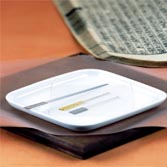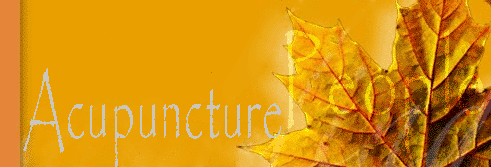Acupuncture & Frozen Shoulder by Kevin Dai L.Ac. O.M.D.
Frozen
shoulder is a name to describe the character of the disease, which also
known as ‘Adhesive Capsulitis’. Actually frozen shoulder is the
inflammation inside the shoulder or around the shoulder. It is a
condition affecting people generally aged between 40 and 60 , but other
ages peoples also can get the problem. Essentially, it is a “ painful
and stiff ” shoulder . It is more common in people suffering from
Diabetes Mellitus. Investigations such as certain blood tests and
X-rays are normal. If not treated, This condition usually lasts between
6 months to 7 years, even life time suffering.
There are 3 Phases to Frozen Shoulder, each lasting several months:
1. Freezing: There is increasing pain and stiffness. The patient first
complains of a painful shoulder, that ‘feels like a toothache’. This
affects the sleep adversely especially when lying on the affected side
. Graduallly , it gets more difficult to raise the arm sideway and to
touch behind one’s head until it becomes impossible.
2. Frozen: The pain gradually subsides but the stiffness persists.
3. Thawing: The movements gradually return . However , many patients do
not regain their full range of movement even after many years.
The anatomy of Shoulder
Shoulder is known as a “ suspension” joint. This type of joint makes your shoulder very
mobile and flexible. However, a “ suspension” joints also limits the
strengthen of your shoulder because it has a shallow socket and very
little support. The anatomy of your shoulder makes it vulnerable to
injury.
Acupuncture care helps restore the strength and integrity of your
shoulder’s supporting soft tissues, to keep your joints flexible and
working pain-free.
Chinese Medical Treatment for Frozen Shoulder: (Scientific Acupuncture Center's Standard)
During the Freezing phase, usually patient feels serious shoulder pain,
patient should receive the treatment of acupuncture as soon as
possible. Besides acupuncture, cupping is a standard method too.
Usually after 3~7 treatment, the shoulder pain will disappear.
Several things should be noted by the patients, during the treatment of
Freezing phase , patient must avoid any kind of movement or exercise of
the shoulder. Patient must avoid heat packs. Ice packs could be used,
if patient suffer serious pain. Painkiller is not recommended at all.
After patient doesn't feel shoulder pain any more, exercise is still
not recommended, the movement of the shoulder only happens when our
doctor's treatment. After the treatment, patient should avoid any kind
of exercise at home. We think the exercise of the shoulder actually
delayed the recovery of the shoulder's full movement range.
Conventional Western Medical Treatment for Frozen Shoulder:
General Advice: There should be sufficient rest for both the patient
and the affected shoulder. Resting the affected arm on a “Collar and
Cuff” sling may help to relieve pain.
Physiotherapy: Heat, and often, Ice Packs will help in pain relief.
Exercise that works through the range of shoulder movement will help if
it is conducted regularly and gently. However, this should be done
after the acutely painful stage has subsided. One particular exercise
is the “pendulum” exercise, whereby the patient leans forward at the
hip, hanging the arm down and move it in a stirring movement.
Medications: Oral painkillers such as Paracetamol and Diclofenac will
help relieve the pain. Oral steroids are effective too. Occasionally,
injection of steroids into the shoulder joint may be indicated.
Surgery: Manipulation Under Anaesthsia, whereby the Orthopaedic Surgeon
manipulates the affected shoulder through certain movements while the
patient is under anaesthesia. The result is significant pain relief and
a possible shortened course of the disease process. Surgical Release
can be done either through an open surgery or an arthroscope.
|





